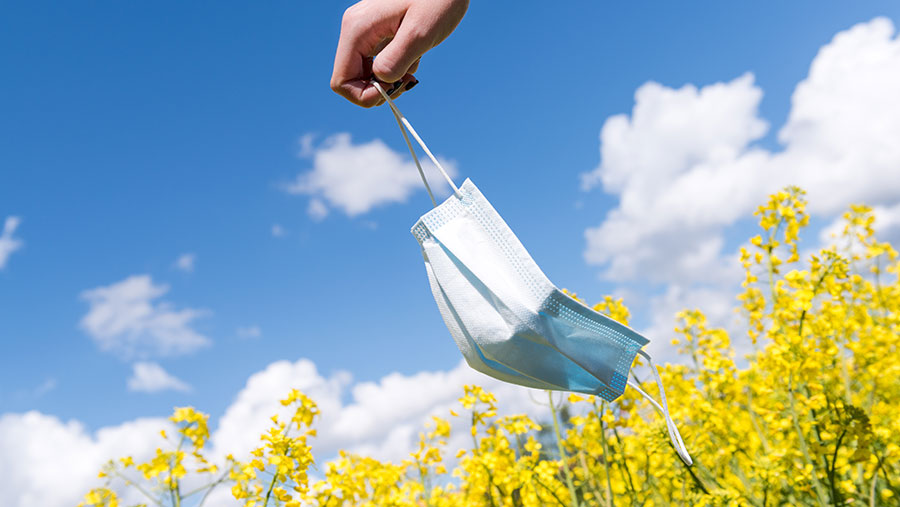Farmer’s grave warning over coronavirus complacency
 © Adobe Stock/Maciej Matlak
© Adobe Stock/Maciej Matlak A Scottish farmer has warned fellow farmers and crofters against complacency over coronavirus and said he had “grave concerns” some people are not taking it seriously enough.
The farmer, who wished to remain anonymous, said he and his family had been struck down by the virus. He was badly affected, bedridden in the weeks prior to lambing and suffered shortness of breath for many weeks afterwards.
The farmer used NFU Scotland’s blog to urge colleagues to protect themselves and their families.
See also: Coronavirus: Diversified business pointers for safe reopening
Here is the full blog:
There is no doubt that 2020 will be remembered as the year of the Covid-19 global pandemic and the impact it had on the life of everyone.
As we seem, at the moment, to be heading out of the worst of this horrible situation, I want to share my family’s own experience of Covid-19 and hope that those who read this will remain vigilant.
I have heard that some farmers are paying little heed to social distancing and other rules – with anecdotal reports of reasonable sized gatherings and little concern for the health of each other – or that of their family.
Farmers are not immune to this and the risks are still high. I would suggest that we, as an industry, escaped the worst of the virus purely due to the time of year when we were pretty much self-isolating anyway – being busy with sowing, calving and lambing.
I am a relatively fit and healthy farmer. But in the first week of lockdown in late March, I went down with what I would describe as an absolutely horrendous flu, which rendered me unable to do virtually anything for 10 days. Even getting out of bed was a real effort.
If this had happened a month later when we would have been flat out lambing, not being able to help would have been a potential disaster. Even by lambing time, I would still get very breathless and would say it took two months to get back to normal. Other symptoms at the time were loss of taste and smell, which are now a significant indicator for Covid-19.
My son, who is a lot younger and fitter than I am, was floored for a week at the same time as I was, so things were not easy to manage. My wife and daughters took on some of the work and got us through, as we were busy calving then too. The ladies of the family all had lesser symptoms, being just off colour for a couple of days. We certainly learned who is the weaker sex!
Thankfully, my elderly mother and mother-in-law kept away from us, so stayed safe. We have not been tested, but it is almost certain that we had the virus. I would not wish it upon anyone, it was a truly horrible experience.
What I fail to understand is the attitude of some, but not all, in relation to our own health compared with that of our animals.
As farmers we are very protective of our animals’ health – but do not seem to care about ourselves. After all, no pig or poultry farmer would allow other farmers on to their pig or poultry unit – let alone bring in another pig or hen of unknown health status and mix it with their stock.
The same applies to cattle and sheep with isolation periods, quarantine, treatment or testing for bovine viral diarrhoea (BVD), sheep scab, to name a couple. We all know how devastating bringing a disease in to your clean flock or herd can be, but some seem to forget those principles with the health of their family and themselves.
I would encourage everyone to think about the possible consequences of bringing Covid-19 into your household.
How would your farm and business cope if you or someone else was laid up for a period? Also, with the new track-and-trace system in place, what would be the impact on you or others in your business? Think what it would mean if you had to self-isolate for two weeks if you are identified as a close contact of someone who is confirmed to have coronavirus. And self-isolation means just that – you are not even allowed to leave the house.
If one of your tups broke into your neighbour’s flock and you think that flock has sheep scab, would you just stick him back in with your own flock – not likely!
So please think before you shake a neighbour’s hand, go out without a mask or go on that social visit – have I done everything I can to protect the health of myself and my family?
Most importantly, stay safe and do not get complacent.
Name withheld.
